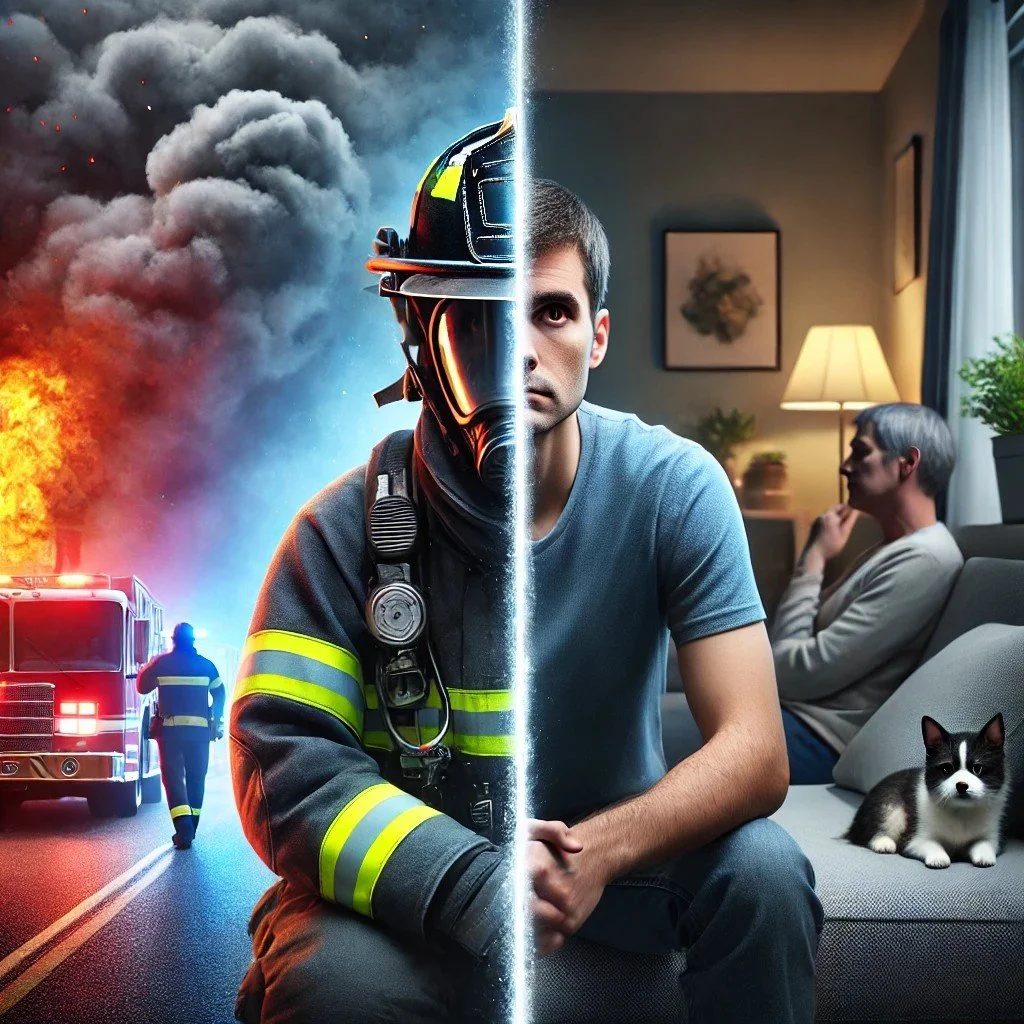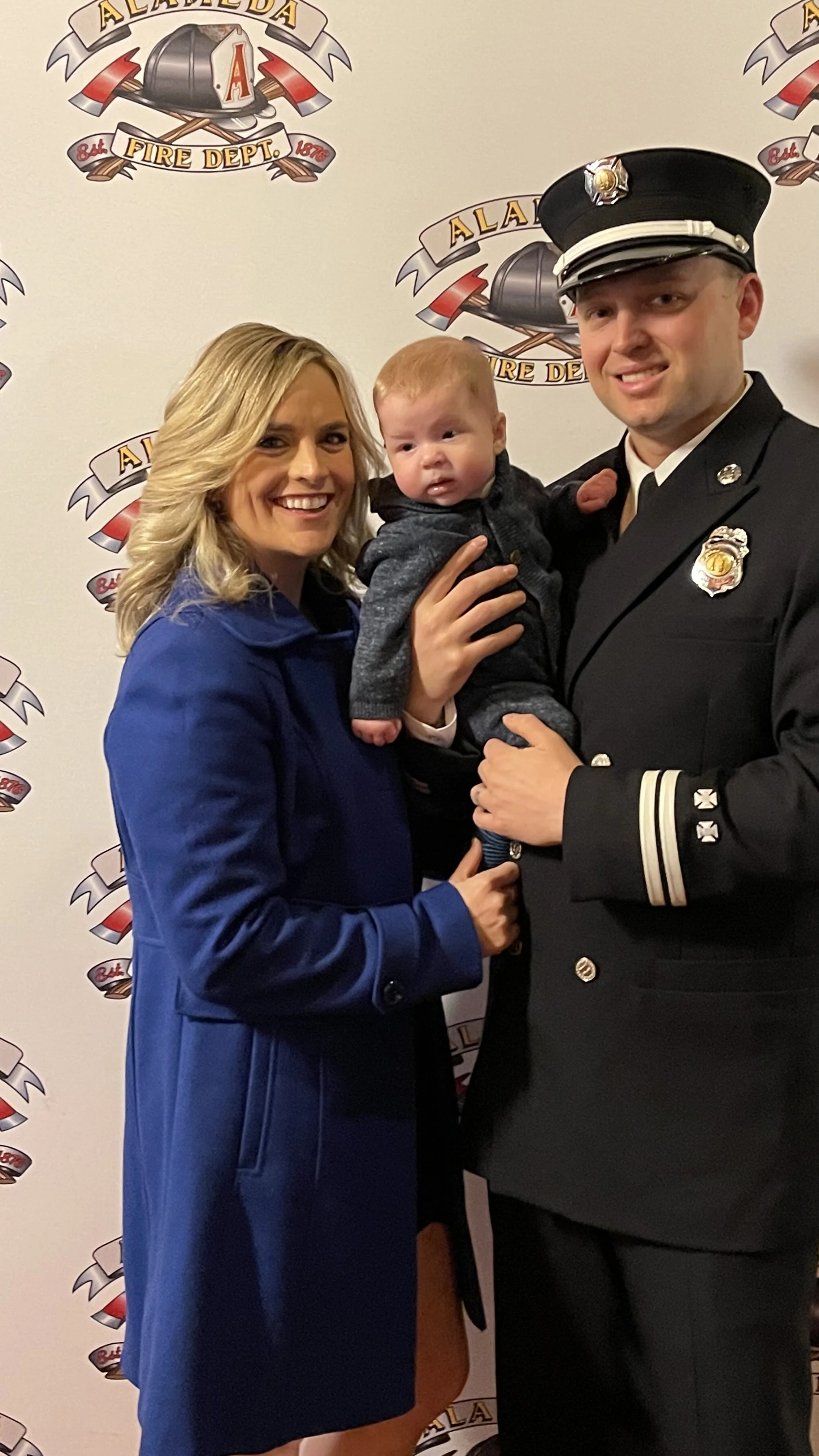First Responders and Family Support & Therapy
When your badge, your call hours, and your heart all carry weight—especially alongside infertility—you don’t have to carry it alone.
The world sees first responders as warriors. What often goes unseen are the emotional aftershocks that follow each call, shift, or crisis. Behind the sirens, uniforms, and steady voices in crisis are humans carrying a weight most people never see. The long shifts, missed holidays, middle-of-the-night calls, and the quiet replay of tough scenes can take a toll—on your body, your mind, your relationships. Whether you’re a firefighter, EMT, law enforcement officer, dispatcher, or the spouse holding everything together at home, life can feel like it’s always on high alert.
Therapy is where you can finally set the radio down. Here, you don’t have to be “on.” You don’t have to protect anyone from your story. This is a place to unpack stress, shift from survival mode to living mode, and reconnect with yourself and the people you love.
Add on infertility, missed cycles, injections, two-week waits—and the weight doubles. Maybe you feel guilt for being “fine” on a night your partner is exhausted. Maybe you’re always wondering how to time appointments around 24-hour shifts. Or maybe you’re trying to love someone who leaves for duty, not knowing whether to feel pride—or fear.
If you’re a first responder (or partner to one) navigating infertility, pregnancy loss, or the long wait of trying, therapy can help you find footing. You don’t have to do this solo.
First Responders Individuals and Couples
1. Processing Trauma & Secondary Trauma
We’ll explore what you carry home—body, mind & heart—and help you release what isn’t yours to carry.
2. Navigating Infertility with Unpredictable Schedules
Help with timing appointments, managing cycles, timed treatments, trigger shots, while coping with shift-work, mandatory OT, or deployment.
3. Relationship Support, Communication & Partnership
For the responder and the partner: improving how you connect when one is always “on duty,” dealing with emotional distance, guilt, and fatigue.
4. Identity, Guilt, & Resilience
You may feel strong, but also torn. Therapy helps you integrate strength and vulnerability—so you don’t collapse under pressure.
Connect Through Conent
Sometimes you just need to read something that makes you feel seen. My blog includes posts for first responders & their families—how to balance trauma exposure, appointments, infertility cycles, emotional distance, and staying connected. You’re not alone, and you’re not losing your mind.
A Therapist who Understands Makes a Difference
Because I’ve walked parts of this road myself—with infertility, balancing expectations, needing to schedule around wild hours.
I focus on working with couples where one or both partners are first responders—so I know the emotional architecture behind “being always ready,” “holding fear in silence,” and “juggling duty + longing.”
My approach integrates mind + body + heart so you’re held in more dimensions and understood in all aspects

If you’re living the double life—first responder demands + infertility stress—and the weight feels too heavy…
I offer a free 15-minute consultation so we can talk about what’s been hardest, what support looks like for you, and whether working together feels like a safe place.


